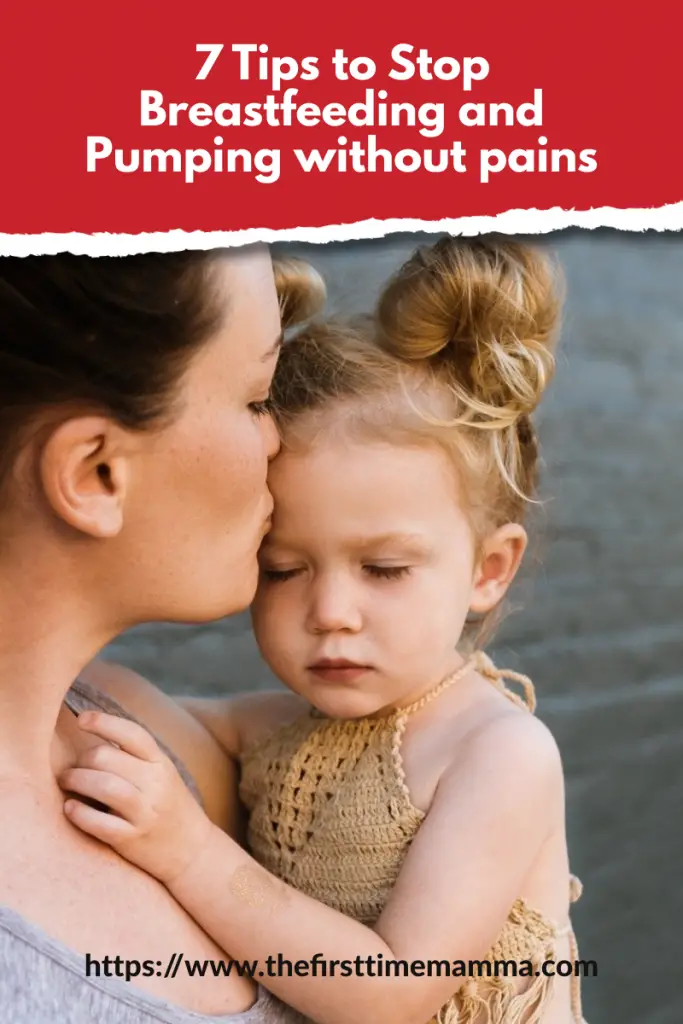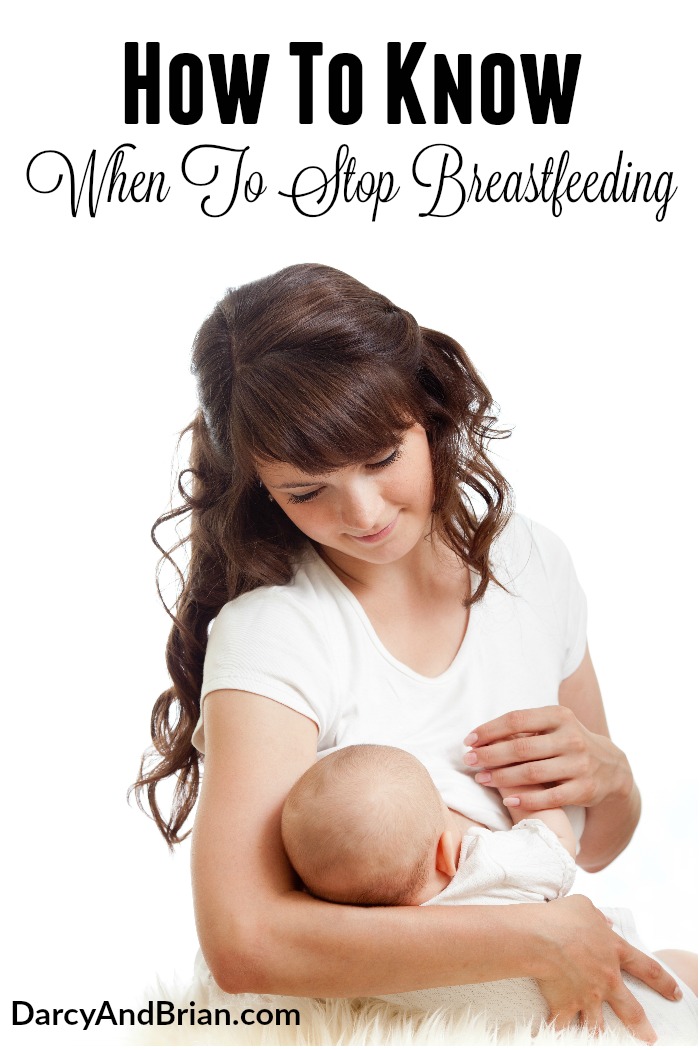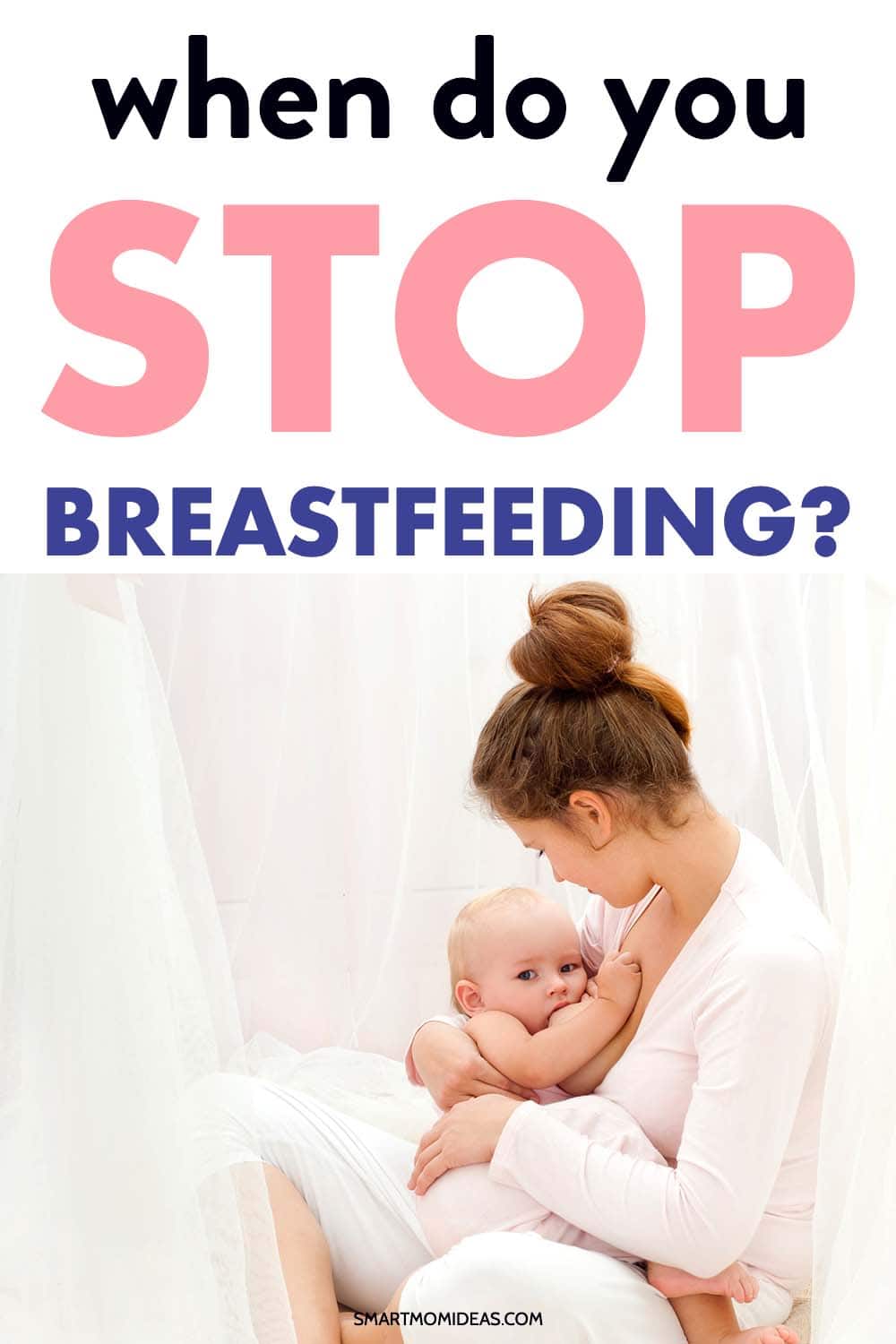When You Should Stop Breastfeeding - Breastfeeding is a beautiful and natural process that provides numerous benefits to both mothers and babies. However, there may come a time when you need or want to stop breastfeeding. Whether it’s due to medical reasons, work obligations, or personal choice, it’s important to know when and how to stop breastfeeding in a safe and healthy manner. Here are some tips, ideas, and how-to’s to help you make the transition to formula or solid foods with ease.
Considerations Before Stopping Breastfeeding
If you are thinking about stopping breastfeeding, it’s important to consider a few things before you make the decision.
Your Baby’s Age
Your baby’s age is a crucial factor in determining when to stop breastfeeding. The World Health Organization recommends exclusive breastfeeding for the first six months of life, and continued breastfeeding with the addition of complementary foods for up to two years or beyond.
If your baby is younger than six months old, it’s important to make sure they are getting enough nutrition from formula or solid foods that are appropriate for their age. If your baby is older than six months but younger than one year, you should consult with your pediatrician to determine the best transition plan for your baby.
Your Health
If you are experiencing health issues that may affect your breastfeeding, such as illness, surgery, or medical treatment, it may be necessary to stop breastfeeding temporarily or permanently. It’s important to talk to your doctor about your specific situation and get their advice on how to proceed.
Your Baby’s Health
If your baby is experiencing health issues that may affect their ability to breastfeed, the decision to stop breastfeeding may be out of your hands. In some cases, babies may have allergies or sensitivities that make it difficult to continue breastfeeding. If this is the case, you should consult with your pediatrician to determine the best course of action for your baby.
How to Know When to Stop Breastfeeding
Knowing when to stop breastfeeding can be a difficult decision for many mothers. Here are some signs that may indicate it’s time to stop:
- Your baby is showing less interest in breastfeeding
- Your milk supply has decreased significantly
- Your baby has started to eat solid foods and is getting enough nutrition from those foods
- You are experiencing pain, discomfort, or other complications that make breastfeeding difficult or impossible
- Your work or other obligations make it difficult to continue breastfeeding
Tips for Stopping Breastfeeding
If you have decided that it’s time to stop breastfeeding, here are some tips to help you make the transition:
Gradual Weaning
Gradual weaning is the recommended approach for stopping breastfeeding. This involves slowly reducing the number of breastfeeding sessions over a period of several weeks or months. This gradual approach can help reduce discomfort and engorgement and give your body time to adjust to the change.
Cold Turkey
Cold turkey weaning involves stopping breastfeeding abruptly. While this method may work for some mothers, it can be uncomfortable and even painful for others. It’s important to talk to your doctor before trying this method to make sure it’s safe for you and your baby.
Bottle Feeding
If you are transitioning to formula or solid foods, it’s important to introduce a bottle gradually to your baby to help them adjust. You may also want to experiment with different types of bottles and nipples to find the one that works best for your baby.
Tips for Reducing Discomfort
Stopping breastfeeding can be uncomfortable for some mothers. Here are some tips to reduce discomfort:
Use Cold Compresses
Applying a cold compress to your breasts can help reduce engorgement and discomfort. You can use a cold gel pack or even a bag of frozen vegetables wrapped in a towel.
Use Cabbage Leaves
Some women have found relief from discomfort by placing chilled cabbage leaves inside their bra. The leaves should be replaced every few hours.
Take Pain Relievers
If you are experiencing pain or discomfort, you can take over-the-counter pain relievers such as ibuprofen or acetaminophen. However, it’s important to talk to your doctor before taking any medication while breastfeeding.
Transitioning to Solid Foods
Once you have stopped breastfeeding, you may want to start introducing solid foods to your baby. Here are some tips to help with the transition:
Start Slowly
Start with small amounts of pureed foods and gradually increase the amount and variety of foods as your baby gets used to eating solid foods.
Choose Nutritious Foods
Focus on offering your baby nutritious foods such as fruits, vegetables, and whole grains. Avoid foods that are high in sugar, salt, or fat.
Make Homemade Baby Food
Making homemade baby food is a great way to ensure that your baby is getting fresh, nutritious food. You can easily puree fruits and vegetables in a blender or food processor and store them in the refrigerator or freezer for later use.
Conclusion
Stopping breastfeeding can be a difficult decision for many mothers. Whether it’s due to medical reasons, work obligations, or personal choice, it’s important to know when and how to stop breastfeeding in a safe and healthy manner. By following these tips and ideas, you can make the transition to formula or solid foods with ease and confidence.

7 Tips to Stop Breastfeeding and Pumping without Pains
- Gradually reduce the number of feedings
- Use a breast pump to slowly decrease your milk supply
- Offer a bottle of formula or expressed milk instead of breastfeeding
- Use cold compresses or cabbage leaves to ease discomfort
- Take pain relievers as needed
- Stay hydrated and eat a healthy diet
- Get support from a lactation consultant or support group

Things You Should Consider Before You Stop Breastfeeding
- Your baby’s age and nutritional needs
- Your health and any medical issues
- Your baby’s health and any allergies or sensitivities
- Your work or other obligations
- Your emotional readiness to stop breastfeeding

How to Know When to Stop Breastfeeding
- Your baby is showing less interest in breastfeeding
- Your milk supply has decreased significantly
- Your baby has started to eat solid foods and is getting enough nutrition from those foods
- You are experiencing pain, discomfort, or other complications that make breastfeeding difficult or impossible
- Your work or other obligations make it difficult to continue breastfeeding

Before Giving Up Breastfeeding - Consider This Before You Quit
- Explore all the benefits of breastfeeding for both you and your baby
- Assess any issues that are making breastfeeding difficult or uncomfortable
- Get support from a lactation consultant or support group
- Consider gradual weaning to reduce discomfort and engorgement
- Consult with your doctor before trying any weaning method

When Do You Stop Breastfeeding?
- When your baby is developmentally ready for solid foods
- When your work or other obligations make it difficult to continue breastfeeding
- When you are experiencing medical issues or treatment that affect your ability to breastfeed
- When you feel emotionally ready to stop breastfeeding
View more articles about When You Should Stop Breastfeeding